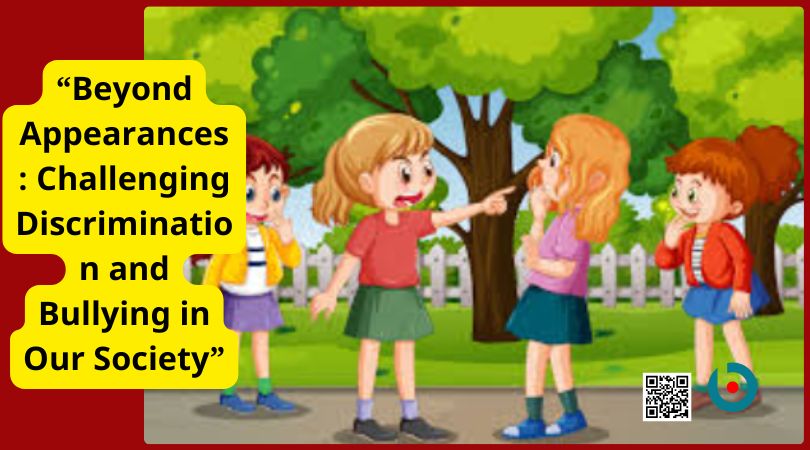Sk Muzahid
A close younger brother of mine has dark black skin, and recently, he has faced bullying from some of his classmates.
They call him “Nigerian,” “African,” and other derogatory names, making him feel like an outsider in his school.
He just started high school, and it’s disheartening to see him struggle with this behaviour.
Unfortunately, the bullying doesn’t stop with his classmates. Some older individuals in our village also participate in this harmful behaviour, perpetuating a culture of discrimination. What hurts the most is that names like “Nigerian” and “African” have become a normal part of his experience, stripping away his identity and dignity.
Listening to his story has deeply touched my heart. It’s painful to witness how some people can be so unkind based solely on skin colour.
2). One of my friends, who is not conventionally handsome and has a darker skin tone, recently turned 25 and is ready to start a married life.
He chose a girl from our village, believing that their shared background would help secure her family’s acceptance of his marriage proposal.
After some time, he sent a proposal to her family, hoping for a positive response. However, he was met with unexpected tragedy. The girl’s mother publicly ridiculed him, asking how such a “bad-looking” man could think he was worthy of marrying her beautiful daughter. Despite the proposal being meant to be private, her harsh words spread throughout the community, leading to further humiliation.
This experience was a painful wake-up call for my friend. He realized that in Bengali society, looks can often overshadow character and kindness, turning his self-esteem into a source of shame.
3). A female student at Dhaka University, known for her remarkable talent, recently opened up about her struggles with self-acceptance due to her skin colour, which some describe as grassy.
Despite her intelligence and achievements, she often feels overshadowed by her family’s good looks and fair skin.
Her relatives have subjected her to bullying, questioning how someone like her fits into their family. As a result, she has not received any marriage proposals, and she frequently faces discrimination based on her appearance.
In a moment of vulnerability, she shared her pain, asking, “Why did Almighty create us this way?”
Her heartfelt question reflects the deep humiliation and frustration she endures in a society that often values appearance over character.
In reflecting on these stories, it becomes clear that the issues of bullying and discrimination based on skin colour and appearance are deeply entrenched in our society.
To build a more inclusive and compassionate community, we must challenge and change these harmful perceptions.
First, we need to foster open conversations about diversity and self-acceptance, highlighting the value of inner qualities over outward appearances.
Education plays a crucial role in breaking down stereotypes and promoting empathy.
By teaching young people about the beauty of diversity, we can cultivate an environment that celebrates individuality rather than conformity.
Second, we must actively stand against bullying and discrimination, supporting those who are marginalized.
This includes advocating for policies in schools and communities that protect individuals from harassment and promote equality.
Encouraging bystanders to speak up against injustice can create a ripple effect of kindness and solidarity.
Lastly, we should recognize and appreciate the unique contributions that everyone brings to our society, regardless of their appearance.
By embracing and uplifting each other, we can create a society that values character, kindness, and talent above all else.
Together, we can work towards a world where every individual feels valued and accepted, paving the way for a brighter, more harmonious future for all.

